This Is Your Sign To Be In A Throuple
on love triangles, challengers, past lives, passages and couplets
“Well, there were three of us in this marriage… so it was a bit crowded.” - Princess Diana (BBC, 1995) …. and Art Donaldson (Challengers, 2024) hehe.
At an early screening of Challengers, Justin Kuritzkes sat cross-legged in the SAG AFTRA theatre across an audience full of writers. The theatre was a fire hazard, stuffed to capacity with attendees spilling onto the stairs to watch the anticipated film and hear from its creator.
Ads on the subway, ads on Instagram, ads on billboards followed me to the theatre, all promoting the landmark imagery of the film: Zendaya’s eyes hooded in purple shades, her golden hair crisped into a bob while Mike Faist and Josh O’Connor dueled in opposite lens. What I found most striking was the billing underneath the title. Despite the film being presented as “Luca Gaudagnino’s” Challengers, “WRITTEN BY JUSTIN KURITZKES” not only appeared on par with the director’s name in size but before. Whether Kuritzkes pushed for this billing tier or not, it's a sign that Kuritzkes aims to build a brand behind his name and future projects. After the writers strike, it’s refreshing to witness a screenwriter confidently assume centerstage, and with it, take credit for what will certainly be one of the most talked about films of the year.
When the film ended, the theatre moderator handed the microphone to the audience for a Q&A. These things are normally a crapshoot but Kuritzkes remained stoic, navigating queries with precision, often refocusing to his intentions with the screenplay.
The last question from the audience went something like this, “In a story about three people, how do you make sure you’re not spending too much time on one character, or the relationship between two characters, without forgetting the third?” It’s a question I sought the answer to as the majority of the film scenes exist between two characters rather than all three.
Kuritzkes served an answer without pause: In the scenes between the two characters, be it any coupling of Tashi Duncan (Zendaya), Art Donaldson (Mike Faist), or Patrick Zweig (Josh O’Connor), the absence of the third character is loudly apparent. The missing space, the outline that they leave behind, is hard to overlook. Even when they are not in the scene, you can’t help but think of them.
In these moments, I believe the audience assumes the perspective of the off-screen third. You’re watching Art and Patrick froth over Tashi in private with her performed disinterest in mind, you're gagging at the passionate humping between Tashi and Patrick while thinking about the betrayed Art and you’re observing Tashi scold her pathetic husband with the inkling that Patrick might have what they are each missing.
It doesn’t escape me that the longest scene in the film – yes, that scene1 – is the one with all three characters present. And yet, it’s the scenes with just two of them that feel the most intimate, where the characters' motivations are articulated the clearest and where the off-screen third’s presence cannot be ignored.
We think about this often, right? When my friends and I gossip about others in open relationships, throuples and/or love triangles, we try to decipher who is the nagging third that’s nibbling at leftover morsels of the relationship and who is at the head of the table, well fed, having their cake and then some. It’s likely assumed that someone is getting the short end of the… stick and is only meek ornamentation to the bond between the other two.
But what if it wasn’t this way? What I admire about Challengers is that all three members of the throuple need each other. Patrick is in love with Art, Art is in love with Tashi, and Tashi, well, she’s in love with tennis which, after her injury, only the boys can play. All of them desire something that the other has. It is only when they are all together that they are their most functional, where the love triangle assumes the strongest shape. Three points: Tashi the brains, Patrick the body, and Art the heart. As a result, there is no one at the bottom of this love triangle. It’s a relationship of tops.
We’ve been starved for representation of what I’d like to call “the harmonious throuple.” I mentioned previously that Past Lives and Passages were two of my favourite movies of 2023, both exploring tenuous love triangles that counter the dynamic Challengers presents:
Past Lives, written and directed by Kuritzkes’ partner, Celine Song, leads Nora (Greta Lee) to a fork where she must choose between Hae Sung (Teo Yoo) and Arthur (John Magaro). Conflicted, she attempts to reckon with the complexities of her past with her new life. The film does not contemplate what a future could look like with all three members. It is assumed that, much like Harry Potter and Voldemort, one man cannot exist in the presence of the other. In the end, Nora, woeful and hesitant, chooses Arthur.
In Passages, Tomas (Franz Rogowski) destructively rallies between partners like a tyrant, demanding unconditional support from the ditched partner as he barrels towards a new love. He is greedy but, in his mind, for good reason. For Tomas, love – regardless of the cost – should be prioritized. There is no restraint or exclusivity to it. It’s the good ol’, “If you love me, why would you ever want to hold me back from new experiences?” argument. But for Martin (Ben Whishaw) and Agathe (Adèle Exarchopoulos), restraint is where love lies. For them, love is not to be collected and stacked like Horcruxes. It’s meant to be preserved.
In both films, the leads use their relationships as vectors to explore the self. For Nora, the throuple allows her to revisit her South Korean roots to re-evaluate the American dream she is chasing (and achieving). For Tomas, his hedonistic desire for both partners temporarily enables him to prioritize his validation over others' needs, to have his cake and eat it too. Eventually, his blinding drive for romance manifests a ruinous plight, rupturing the points of the triangle for good.
Both films present a throuple with a 1 x Tashi vs 2 x Art dynamic which is why, for me, the relationships fail. In Passages, the throuple disbandment occurs on screen but for Past Lives, I wager that Nora and Arthur don’t make it either. The union between the two always seemed more grounded in convenience than mutual understanding and compassion. As if Nora never truly felt seen by Arthur but was putting up with him the way some New Yorkers do, when the rent gets high and the winters get cold and before you know it, another year has gone by. I sensed that their relationship was lacking a certain passion to it. But, maybe, no, it wasn’t lacking a passion. It was lacking was a Patrick.
The Ezra Klein Show makes a compelling argument for this mode of polyamory. On the podcast episode “What Relationships Would You Want, if You Believed They Were Possible?”, Klein’s guest, Rhainia Cohen, notions that the social experiment of traditional relationships is failing, and we should all consider other significant others to live longer, happier, and healthier. Expecting everything from one person, she believes, is not only selfish but unrealistic. Cohen offers that seeking enrichment (be it physical, social, or financial, you name it) from a variety of people will lead to greater fulfillment than seeking all our needs from just one. She shares an example from her own life:
Cohen: I live with a couple of my friends and their kids, so I get to experience a little bit firsthand what it looks like to have other adult figures in the picture.
Klein: Tell me a bit about how that began. You mentioned that at the end of the book. I’m very curious about it.
Cohen: My husband and I have been interested for a long time in living with friends. And we were really excited to live with these particular friends, and we have been for about two and a half years. There are all sorts of ways that I know that my life is enriched by having access to these kids. But also, my friends enjoy our presence as other adults in their kids’ lives, and I think pressure on them is relieved. A couple of weeks ago, my housemates were trying to figure out whether to take their older son to the E.R., and one of them went to my husband and was like, “Can you hold the baby for 10 minutes while we go and figure this out?”
That’s not co-parenting, holding a baby for 10 minutes. But it’s just one of the many ways that simply having more people can make the parenting experience so much less stressful or difficult. And I think that the kids love to have other adults who love them there. Yeah, there are toys on the floor, and particularly with two kids, I feel there’s a bump up in chaos.
I gonna have to immediately come out and admit that this sort of adult-family-roommates-taking-care-of-kids-that-aint-mine is not the vibe for me personally but I understand her sentiment. Why outsource everything to one person? Why settle for someone generally alright at enough things when you can cultivate a roster of experts who are excellent at specific things? There have been people in my life whom I love to go dancing with who wouldn’t be my first call if I wound up in the hospital. There have been folks that I enjoy dining with and lovers whose dietary restrictions make it unfathomable for me to envision a future with just them. You rarely find someone who can do it all. You either delude yourself into thinking someone can satisfy all of your needs or you move forward, like Nora, with the sobering understanding that not all of your needs will be met. There will be a quiet part of you that is resentful of what your partner cannot provide. Sometimes it’s unnoticeable but other times, as with Tomas, it becomes destructive.
Returning to the podcast, Cohen offers a more gratifying way forward, one through community rather than individualism. Maybe Tashi was onto something. Why have only Art when you can have Art, Patrick, and tennis?
In the last LOOSEY, I said Lapvona was my favourite book that I’ve read so far this year but, upon inspection, Couplets may also be a top contender. Without giving too much away, Couplets follows the true story of a woman attempting to open her relationship. Told in remarkable rhyming couplets, Maggie Millner narrates the navigation of an affair amidst the dismantlement of her long-standing relationship. Positioned as ‘a love story,’ the book explores not only the love between Millner and her long-term boyfriend and Millner and her new girlfriend but also the love for herself. Through the contrasting of the relationships, Millner explores her identity and queerness to arrive at a new certainty by the end of the novel. My favourite poem in the novel is the first one, PROEM:
I became myself.
I became myself.
No, I always was myself.
There’s no such person as myself.
I wouldn’t have to turn my eye
inward, I thought, if I could train my eye
on him–the one I loved.
But I was wrong. My eye loved
everything it fell upon.
And then one day it fell upon
a mirror. And he was nowhere
in the mirror. And she was everywhere.
It’s ambiguous if the final ‘she’ in the couplet is referring to Millner or her new lover. My interpretation is that it’s meant to be interchangeable. By exploring love with another – finding a third – she ultimately refocuses her gaze on herself.
When questioned about the ending of Challengers, Kuritzkes returns to the script, reinforcing that the decision to end on Tashi’s face was his own and, after that, there was nothing left for him to explore. I like this, when writers stand on business, talk their shit, and own the final output.
The final scene, like Millner’s poem, is up for interpretation. Just like in PROEM, the ‘he’ of Challengers, Art, and Patrick, are nowhere to be seen and we close with ‘she,’ a close-up shot of Tashi as she reacts to the match. And she was everywhere. It’s left up to us to decide what she sees.
I return to something Tashi said at the beginning of the film when she first meets her boys. She remarks that all she cares about is watching good tennis. And to her, good tennis is like a relationship. A great rally back and forth. One where all players are in a harmonious fluency. There’s a word for that in tennis. A word where no player has gotten a point over another, when the score is zero and they are meeting each other at equal footing. I believe the word is love.
LOOSEY is a bi-weekly newsletter about culture, technology, and the way we live. If this is something you like, consider subscribing and sharing. Let’s be friends.
When Blood Orange plays in a Luca Guadagnino film, you know some shit is about to go down.


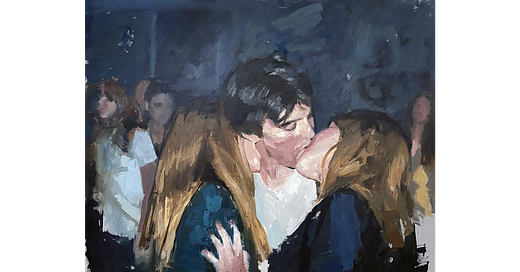


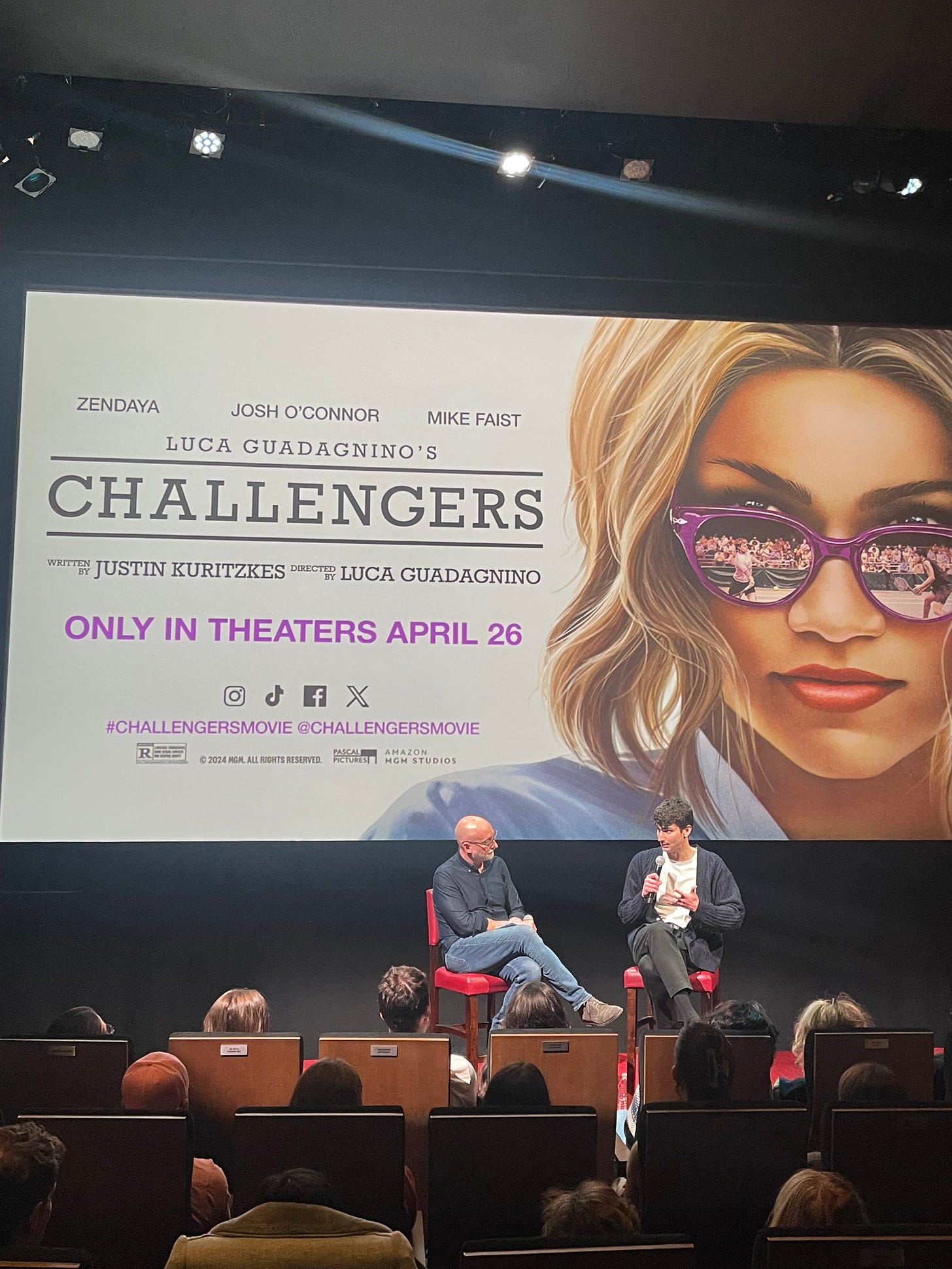

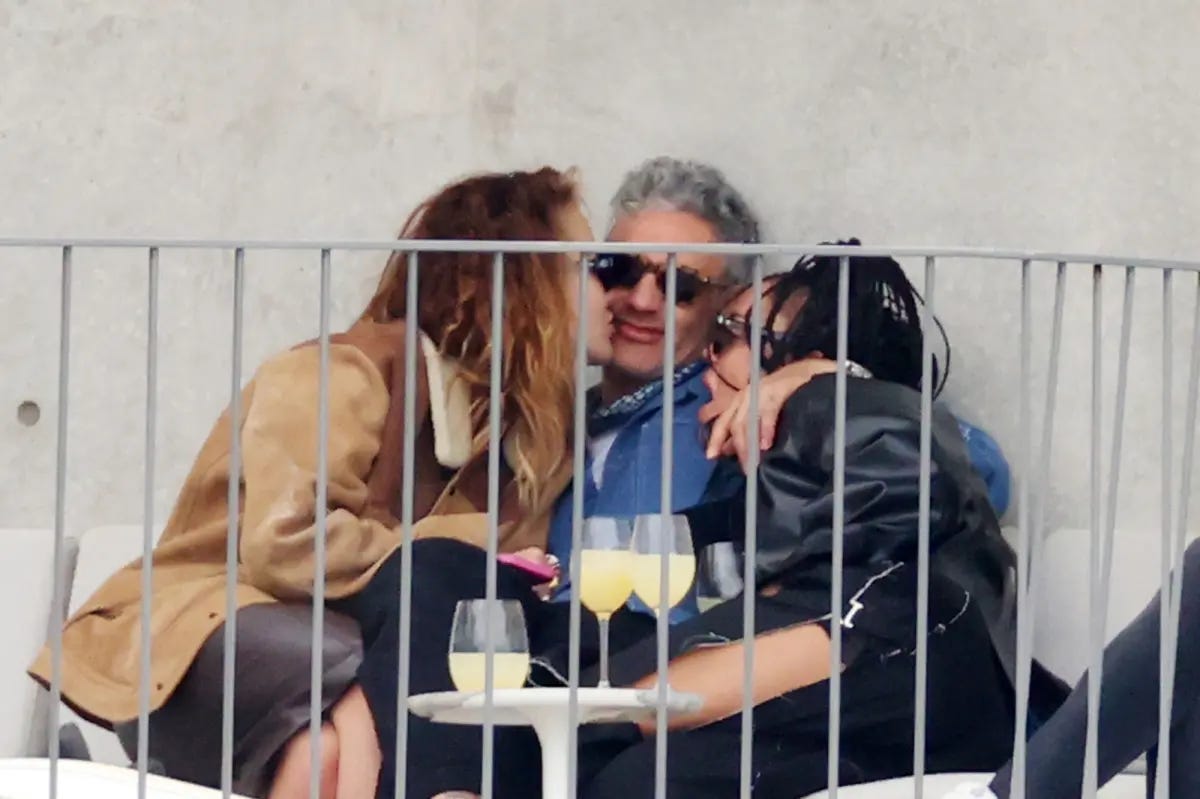
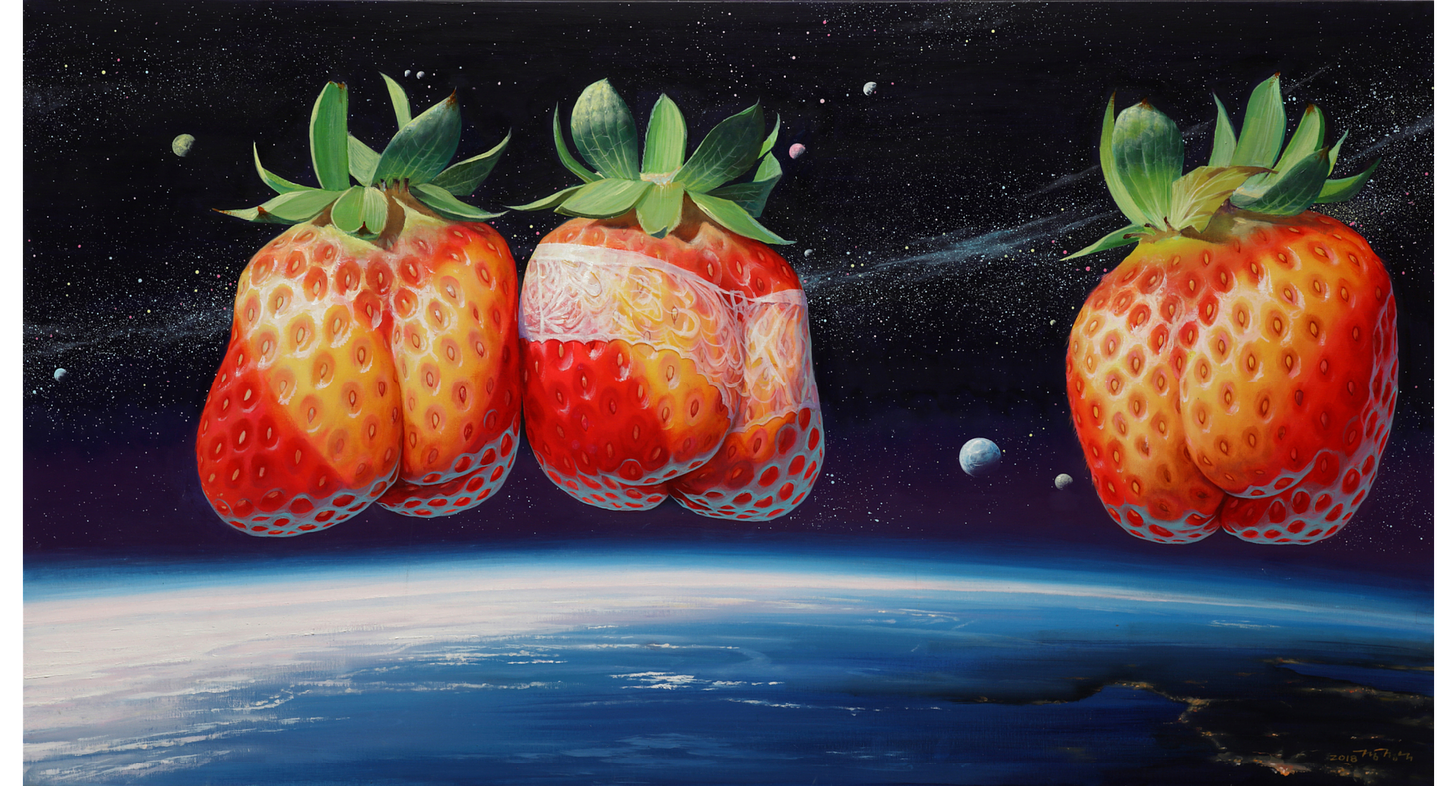
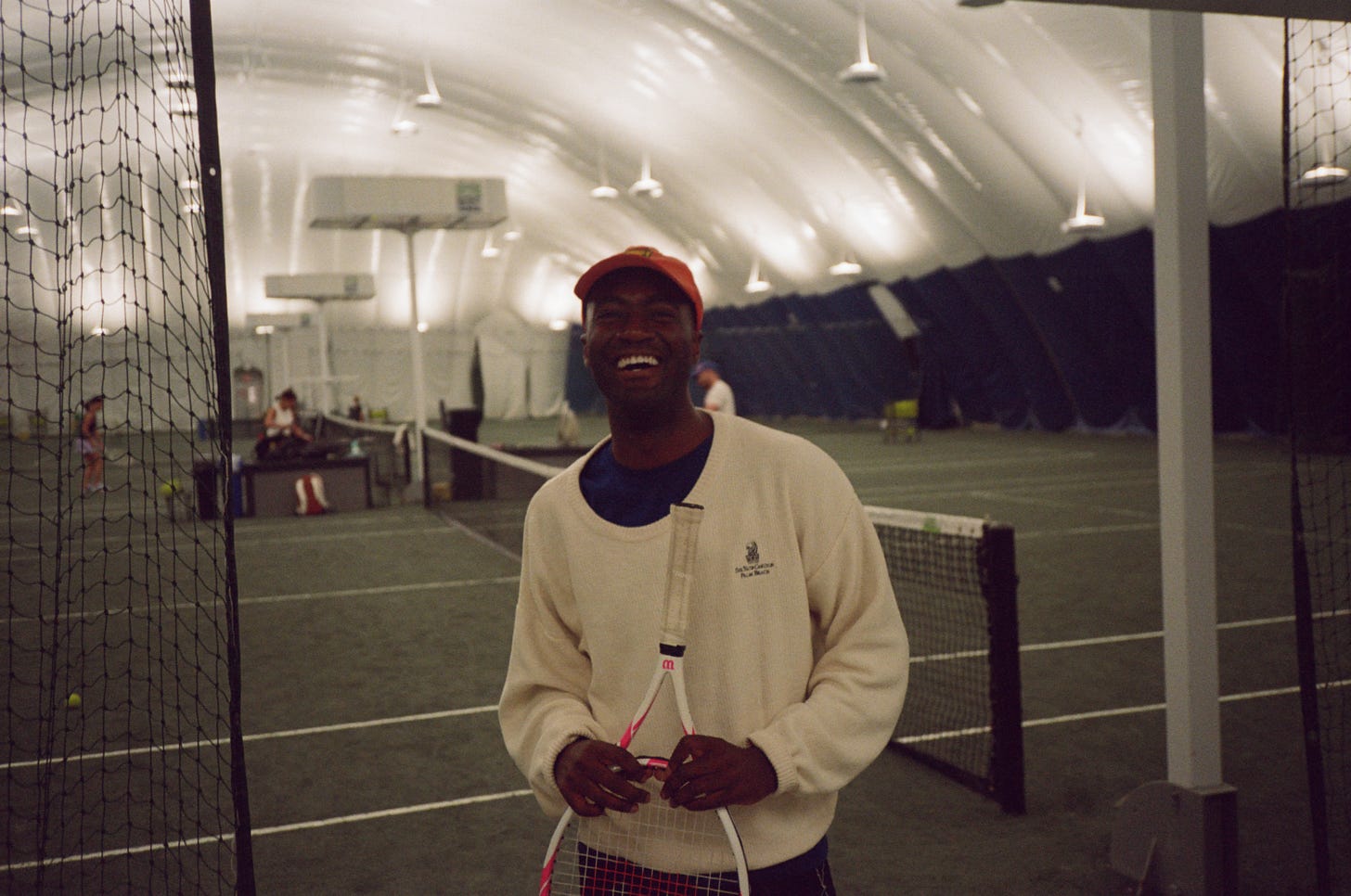

I have a soap box reserved for my disdain for "the nuclear family" and my deep-held belief that family structures and support systems need to be diverse to thrive. Yet somehow, I never connected this to the idea of polyamory. Regardless of sexual/romantic relationships, I think the idea of one person fulfilling all needs is naive. Thank you for the thought provoking read! Bonus: you made me like Challengers more than I did in my first pass.
I loved this. I loved Past Lives (yearner) and Challengers (fun) for different reasons and never connected them to the larger moment we're in. The sociologist in me wonders if the rise of polyamory/comfort with open arrangements would exist if the idea of the perfect marriage and the white picket fence had been allowed to be a choice vs something shoved down our throats for so long: people wouldn't want to break free of an arrangement if other possibilities had been allowed to exist.